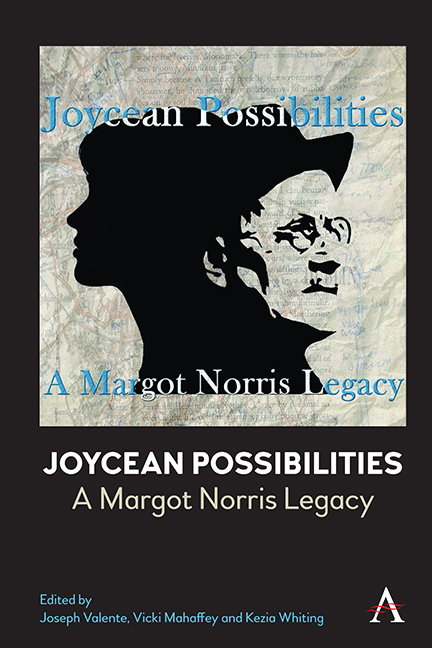10 - “Foreign Words are The Jews of Language”: Joyce’s Philological Anatomy of Anti-Semitism and The Diaspora of Joyceans
Published online by Cambridge University Press: 20 April 2024
Summary
In her article on “Fact, Fiction, and Anti-Semitism in the ‘Cyclops’ Episode of Joyce's Ulysses,” Margot Norris offers a scrupulous study of how “anti-Semitic stereotypes are consolidated and disseminated into a community as true.” This essay will take its inspiration from what Norris identifies as the “narratological anatomy of anti-Semitism” (171) unfolding in “Cyclops,” and from her preoccupation with the circulation of gossip and the authentication of information. It will contend that this “narratological anatomy” is complemented in Ulysses with a philological anatomy of anti-Semitism, which Joyce further pursues in the diasporic linguistic program of Finnegans Wake, and which must be met by a diasporic response from his readers.
The episode that displays the most explicit level of anti-Semitism in Ulysses is also that which explores the limits of unreliable narration, with a narrator who has variously been called by critics a “barfly,” “the Nameless One,” or a “dun” (Norris's choice, 164), and who in our day and age would probably be termed a troll. Joyce himself explained that he was influenced by the character of Thersites, from Shakespeare's Troilus and Cressida, a malevolent, envious Greek warrior who insults and systematically attributes the most cynical motivations to the legendary heroes appearing on stage. The “Cyclops” narrator reacts similarly to the characters appearing in the pub, and his voice is further foregrounded, since his narrative and interpretation are the only ones provided. In Shakespeare as in Joyce, this riling speaker is allowed to have the last word, and in “Cyclops,” apart from the parodic interpolations—which are but interpolations and never narrate new events in the pub—he is never interrupted or contradicted.
The “Cyclops” narrator is an expert at circulating unreliable narratives, and therefore his connection with anti-Semitism—defined by Theodor Adorno as “the rumour about the Jews”—should not come as a surprise. The anti-Semitic narratives circulated in “Cyclops” are founded on stereotypes about Jews. Into these stereotypes, what is known—or what is believed to be known—is reorganized to fit in: reality is bent to correspond to set phrases and hackneyed formulas, whose only pretension to the truth are that they have been heard before and are part of a general store of cliches. Only a philological approach may deconstruct these linguistic forms.
- Type
- Chapter
- Information
- Joycean PossibilitiesA Margot Norris Legacy, pp. 143 - 158Publisher: Anthem PressPrint publication year: 2022

